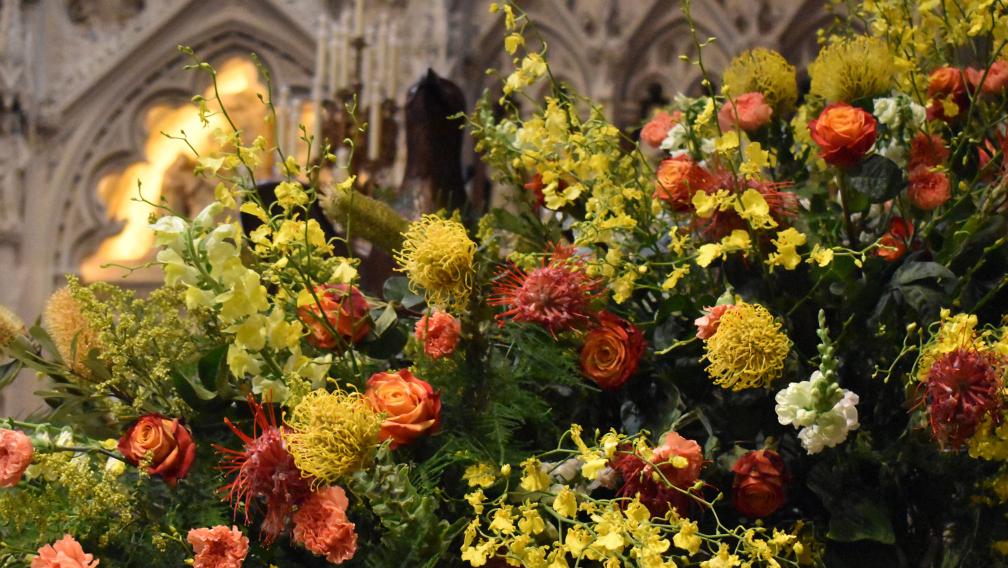The eleven disciples went to Galilee, to the mountain to which Jesus had directed them. When they saw him, they worshiped him; but some doubted. And Jesus came and said to them, “All authority in heaven and on earth has been given to me. Go therefore and make disciples of all nations, baptizing them in the name of the Father and of the Son and of the Holy Spirit, and teaching them to obey everything that I have commanded you. And remember, I am with you always, to the end of the age.”
Matthew 28:16–20
It is Trinity Sunday. We hear “Father, Son, and Holy Spirit” every Sunday, and we profess to worship the Triune God. Through the centuries, theological tomes have been written, councils held, arguments waged, heretics named over this doctrine. Today we are often left with “it’s a mystery,” and we might just shrug our shoulders.
However, what matters about the Trinity is that God is a relationship. God is a relationship within Godself: Father, Son, and Holy Spirit (or Creator, Redeemer, and Sustainer). Just as God is relational within Godself, we are called to be in loving relationship with God and one another.
Last week, some of the Trinity community had the opportunity to learn from the Archbishop of the Anglican Church in Aotearoa, New Zealand and Polynesia and his colleagues while they visited New York. They taught us the word tapu, meaning “sacredness” in English (although he noted there isn’t an English word that captures the full meaning). Actions between people or communities are considered by how they might enhance or diminish the other’s sacredness or tapu. This is a framework we could use right now for all our relationships: are we enhancing or diminishing another’s sacredness?
This is a framework we could use right now for all our relationships: are we enhancing or diminishing another’s sacredness?
Matthew’s Gospel describes Jesus giving the Great Commission: to make disciples of all nations. This passage has been used throughout history to convert non-Christians by any means necessary, including violence in all its forms. Yet, if we think of the relationality of God, we can see this call is about enhancing the sacredness of everyone we meet. Jesus says to teach all the world what he commanded: feed the hungry, welcome the stranger, clothe the naked, take care of the sick, visit those in prison; loving God with all your heart, soul, and mind and your neighbor as yourself (Matthew 25:35–36; 22:37–39).
—Ruth Frey
THEOLOGY
“Why should we care about the three-in-one?” asks Debie Thomas. “We should care because we are children of the Trinity at a time when the world is reeling and desperate.”
SOCIAL JUSTICE
Eric D. Barreto writes, “Jesus’s Great Commission in Matthew 28 is not a call to domination…Jesus calls us to trust in God’s power, to trust in God’s creative bending of the world towards justice.”
SPIRITUALITY
“It was on this mountain that Jesus offered the disciples three gifts,” reflects Ruth Harvey.
VISUAL ART
Bill Gaultiere discusses the symbolism of Andrei Rublev’s famous icon of the Holy Trinity and offers a meditation by Henri Nouwen.
MUSIC
Sandra McCracken sings “Trinity Song.”
Get the Five Ways In Your Inbox
Sign up to receive reflections and updates from the Faith Formation & Education team.
Coming Soon
Over the summer, join the Trinity community for a parishioner-led study of Paul’s letter to the Philippians in Summer Sundays, June 11–August 27.
